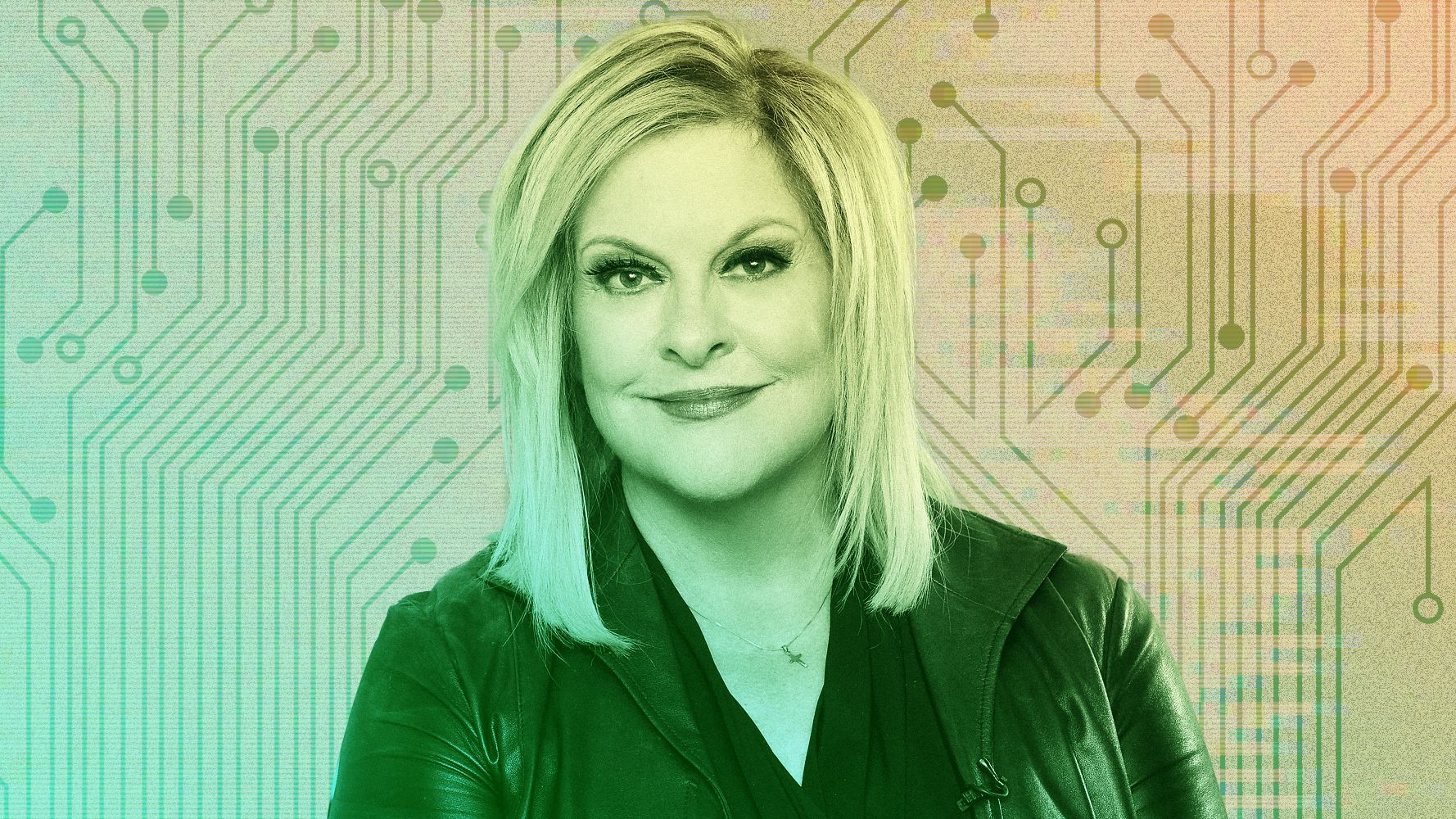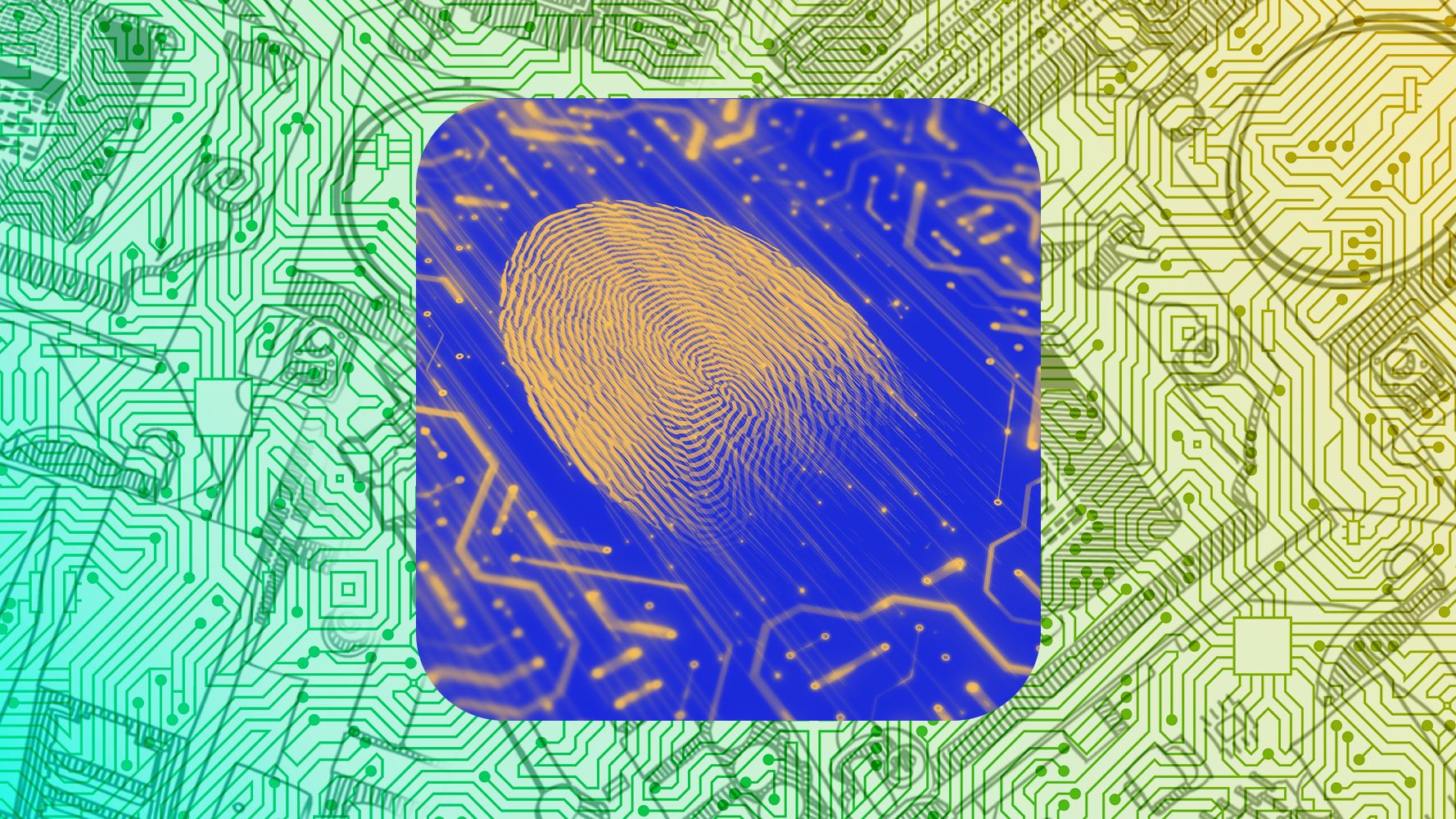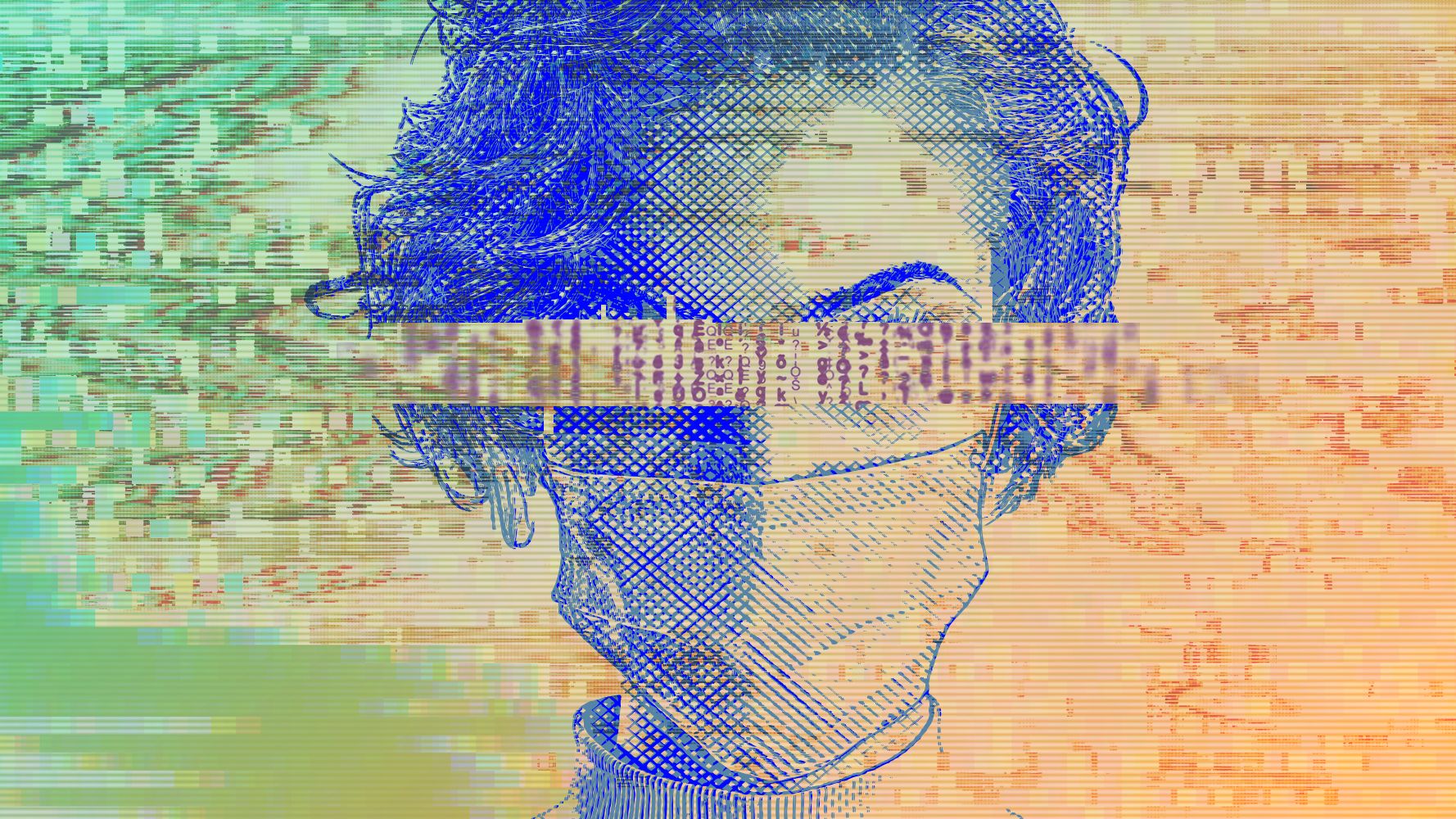Nancy Grace Wants You to Take Your Cyber Safety Seriously
Your life is moving online fast, so here’s advice from the prosecutor and true-crime legend who has seen it all.


TV true-crime avenger and former prosecutor Nancy Grace does not want you or anyone you love to end up on one of her productions. Not on Oxygen’s Injustice With Nancy Grace or the breaking-news site Crime Online. Especially not on her daily podcast, Crime Stories With Nancy Grace. In her new book, Don’t Be a Victim: Fighting Back Against America’s Crime Wave, she shares insider knowledge on how to stay safe, pointing out that, increasingly, danger comes to us through losing control of our private data via technology. “It’s just like drinking from a fire hydrant,” she says. “When it comes to the type of potential harm that can find you online—because you have no idea who you’re letting into your life—there’s just so much to digest at once.” Here, we chat with Grace about putting safety first, especially in these virtual times. Plus, her best advice for protecting yourself online.
Marie Claire: Why did you want to write a book about not being a victim?
Nancy Grace: We live in this day of “It won’t happen to me” thinking, because who wants to live in constant fear? I don’t. That’s why I wrote this book. I don’t want to live in fear. I don’t want anybody to live in fear, but I want that to be backed up. To be safe, I want to know I am doing everything I can to protect myself and my family. Obviously, I’m coming from a women’s point of view: protecting their children in all sorts of situations, protecting the elderly, protecting yourself [while] traveling. Long story short, I want to know how to stay safe.
I have prosecuted so many cases and covered so many cases, I can’t even count them all. When I began covering cases and reporting on crimes, I kept an investigative element where I would continue to investigate them on air. But more and more, I longed to actually try to make a difference. Writing the book helped me do that. I thought back over cases I’ve tried, cases I investigated, cases I covered and came up with an amalgamation, a grouping of cases and lessons learned and how that could be used to help other people. I wanted to not just report on crimes but actually help people prevent crimes.
MC: In your book, you describe being at the scene of a terrible crime where there was “malice hanging in the air.” What is it like to be around crime so much?
NG: In layperson talk, it’s like you get a chill down your spine or the hair stands up on the back of your neck. I don’t really discount those “feelings.” I believe that when we have hunches or, as people say, premonitions, I think that it is because we have evolved over millions of years and our bodies and our psyches are fine-tuned to pick up on certain things we may not be able to intellectually digest.
MC: With working from home and quarantining, we are increasingly living online. Does being socially distanced make us safer?
Get exclusive access to fashion and beauty trends, hot-off-the-press celebrity news, and more.
NG: It will go back to a version of normal at some point, but during COVID you cannot let your guard down. You can’t. There is going to be a light at the end of the tunnel. Across the country, lockdowns are being relaxed, but you’ve got to keep the same rules in play, the same safety precautions in place, even though you’re online more, because this is a perfect time for [hackers] to take advantage of you.
MC: You say going with your gut instinct is harder, in a digital world, for people who always wear headphones and think the best way to meet someone is through an app. How can digital natives stay safe?
NG: I think that we are so desensitized to everything around us. There are many types of potential harm because, online, you have no idea who you’re letting into your life. When you meet people in person, you assess them in ways that I cannot even articulate—from the way they look, their shoes, their clothes, their hands, the way they speak, their mannerisms, their habits. Are they rude? Do they drink too much? Do they smoke? Do they do drugs? Are they arrogant? Are they mean to the waitress? [There are] a million things you take in without ever realizing it, and it makes you say, “I’m not going out with him again,” and there’s a reason for that. If somebody asks, you go, “I don’t know why”; you say it just didn’t click. That’s not entirely accurate. It’s an instinct. You are assimilating thousands of clues that you don’t even realize you’re taking in.
Online, you can’t feel any of that out. You can’t analyze any of that. You see what that person wants you to see. The next thing, they somehow have gotten their hand into your digital wallet or purse. When you date online, it’s like you’re going to a potluck dinner. You don’t know what you’re getting. Now, does that happen all the time? No, it doesn’t—but it happens enough that you’ve got to exercise safety precautions.
You heard it from a true-crime expert. Now read Grace’s tips for staying safe online:
“Don’t be lulled into a false sense of complacency,” writes Grace in her book. You may think that hackers wouldn’t bother with little old you, but they will and do. She suggests that, at home, you should focus on your wireless router since it allows multiple devices around your house to connect without being plugged in to a socket. Change the name on the router from the factory setting, but don’t make it so obvious (like “Nancy’s Wi-Fi”) that it can be traced back to you.
Evildoers spend time sweeping the Internet just to find unsecured cameras and cameras that are still using the original user code and password, according to Grace. When they find one, they can hack in and retrieve your private data, photos, and videos. Change your password from the factory settings as soon as you start using your device. And change it regularly going forward.
Tech companies try to stay a step ahead of hackers by patching up flaws in their security systems, she says. Grace’s solution is to keep her devices set to receive automatic software updates, which include security enhancements.
When your Nest or baby monitor is not in use, unplug it. Put a sticky note over the camera lens (don’t forget your computer monitor too) to remind yourself that someone might be watching. In the book, Grace tells of a case in which private video from a baby monitor was shared online by a hacker.
Two-factor authentication (TFA) may sound high-tech, but it’s really not, she explains. This gives your web services secondary access to the account owner (you) to verify when you log in. Look for it under the privacy or security settings of Apple ID, Instagram, Facebook, Twitter, Amazon, Google, WhatsApp, Nest, and Ring, or check here to see if it’s offered on a particular app you use. Using an email address or mobile number, an authenticator sends you a link to click or a code to input to make sure it’s really you signing on. You could also activate the WPA2 encryption codes on your router or subscribe to a virtual private network (VPN). If you suspect someone has tampered with a wireless device, look at your access log for entries at times you definitely were not home. Turn on the firewall that comes with your operating system or security software.
Don’t leave your devices lying around, says Grace. Digital security is important, but so is physical security. When it comes to phones, tablets, and smartphones, lock them up, shut down screens, and keep sensitive data (like bank account numbers or your social security number) off of them—as in, don’t keep a list of passwords or important numbers in your Notes app. And don’t plug in any random USBs; they could contain harmful malware.
Bad actors will try to steal from you via legit-looking emails and other communications—trying to scoop up your credit card info, Social Security number, secret codes, usernames, and other data, she says. If you’re hearing from a major company, watch for misspellings of the company name, grammatical errors, or an email address that seems random (like if a supposed Netflix query uses a non-Netflix domain). A phisher may ask you to “confirm” personal info (by entering it) or may try to make you act in a panic by claiming that you will be billed or an account will be closed.
Grace says in the book that she “hates fakers”—because she’s met enough of them in her time on TV sets and in court. You can verify a social-media profile by doing a reverse image search here. That can tell you if the account is using a stock photo or one that belongs to someone else’s profile. Never accept friend requests from people you don’t know.
What do your home address, DOB, astrological sign, and kitty cat’s name have in common? They can all be used against you, Grace says. Hackers collect any details shared on social media to create, she writes, “a fake identity, a fake you.” Keep the personal details offline.
Picture Grace’s signature “Are you kidding me?” face here: How better to tip off thieves that you’re not home? That is why, she writes, “smart geotagging is no geotagging.” You can configure settings to approve all attempted tags. It’s not too late to delete prior locations on your posts. Then turn off location information for posts still to come.
Apps that just hang around on your phone and sit on your home screen untouched (she likens it to digital hoarding) can still collect your data, even if you’re not using them. Scrap old apps; keeping them leaves an opening for hackers to sneak in.
Grace’s book is full of horror stories of what can happen when you meet up with a cyber con looking for love. In addition to the usual caveats (such as meeting in a public place, not revealing where you work, etc.), be stingy with personal info—and remember that photos can divulge things like a license-plate number or home address. Instead of giving out your cell number or email address, create a free Google Voice number. That way, if your connection goes badly sideways, you can block unwanted calls and move on to a new swipe. As she explains in the book: “The right one is out there. Make sure you live to find them.”
MORE FROM OUR GUIDE TO PROTECTING YOURSELF ONLINE


Maria Ricapito is a writer who lives in the Hudson Valley.

